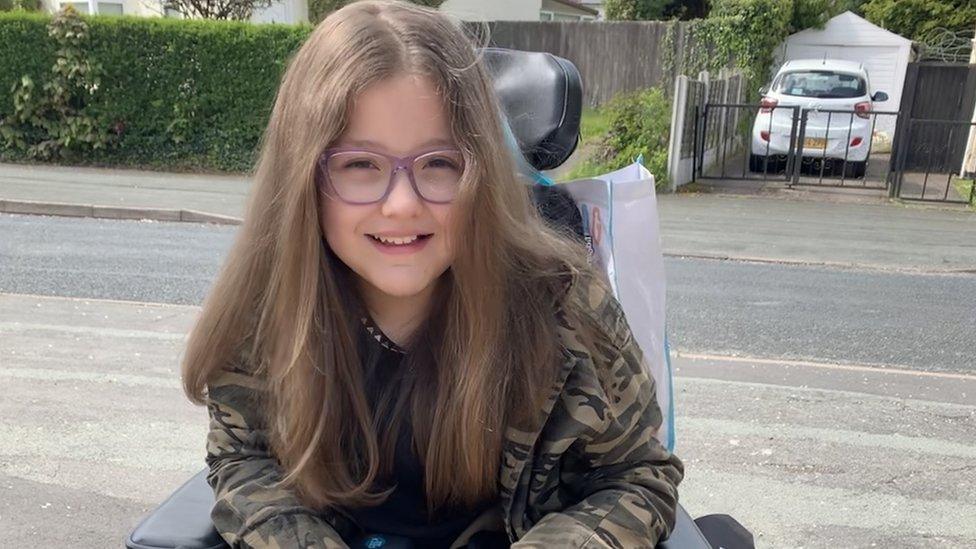Essex baby given £1.79m drug makes 'huge progress'
- Published
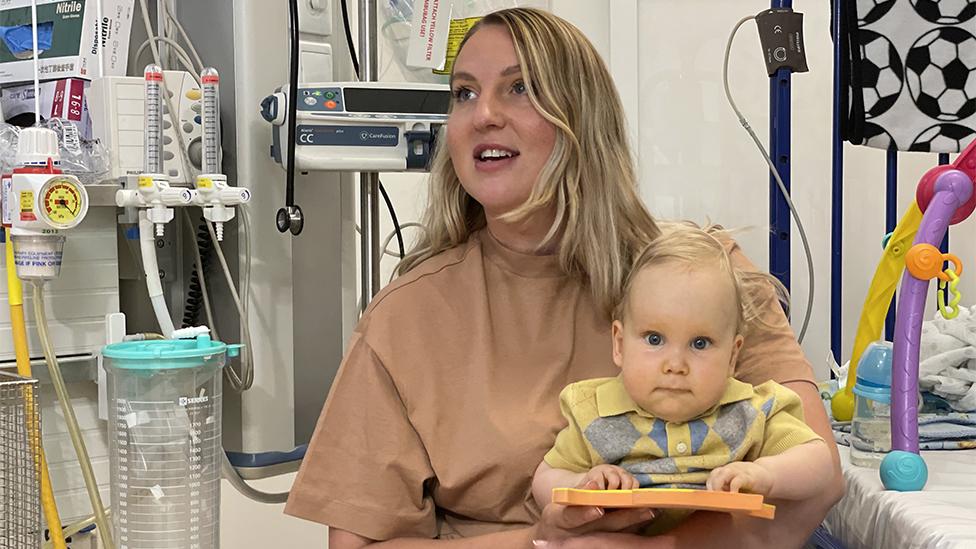
Edward received the new gene therapy Zolgensma, which has a list price of £1.79m
A baby who received the world's most expensive drug four weeks ago has made "huge" progress, his parents said.
Eleven-month-old Edward, from Colchester, has severe spinal muscular atrophy (SMA) which means he lacks a protein vital for muscle development.
He was given the new gene therapy Zolgensma, which costs £1.79m, through the NHS last month.
His mother Megan Willis said he was now able to support his head and body.
Ms Willis managed to capture the moment on film when Edward supported himself
"Edward lifted his head and body from the cushions and held himself for about five minutes," she said.
"We feel so thankful and blessed. I can't tell you the difference in him already."
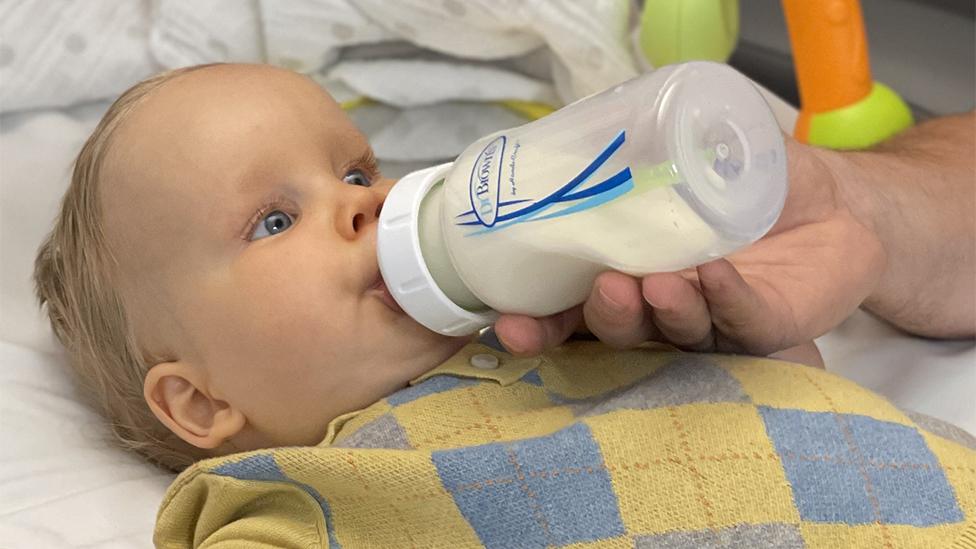
Edward is one of 65 babies born with SMA every year in England
Zolgensma is thought to be the most expensive drug in the world, though NHS England said it had negotiated an undisclosed discount on its £1.79m list price.
Ms Willis, 29, said she was so thankful her son had been given the treatment, which contains a replica of the missing gene SMN1, at Sheffield Children's Hospital.
The family previously said they felt abandoned in their "race against time" for Edward to receive the drug, which must be given as early as possible.
When it was approved for NHS use in March, guidelines said it should only be used for babies under six months old who were not already being treated.
Decisions on babies outside of these parameters, like Edward, would be taken on a case-by-case basis, the guidelines said.
Ms Willis said it was "so stressful knowing there was a wonder drug out there" which they could not access, until the decision was made that he was eligible.
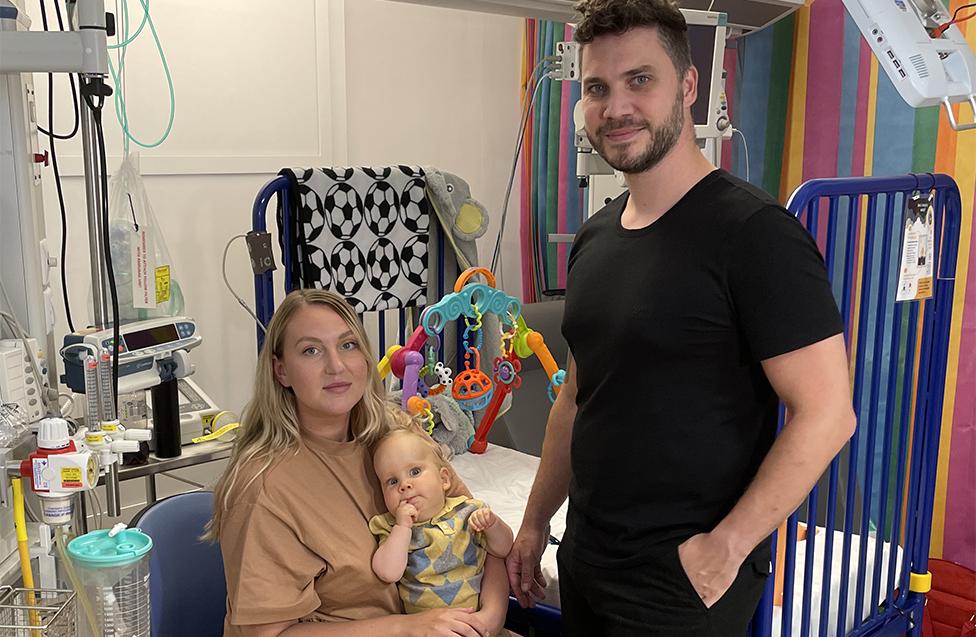
Megan Willis and John Hall say they are very excited for Edward's future
About 65 babies are born with SMA in England each year. It causes muscle weakness and affects movement and breathing, meaning most babies do not live past the age of two without intervention.
Edward, who was diagnosed at two months old, was receiving another drug called Spinraza, which involves regular injections in the spine for life, compared to the one-off injection of Zolgensma.
None of the treatments available offer a cure but Zolgensma has helped babies breathe without a ventilator, sit up on their own and crawl and walk after a single treatment.
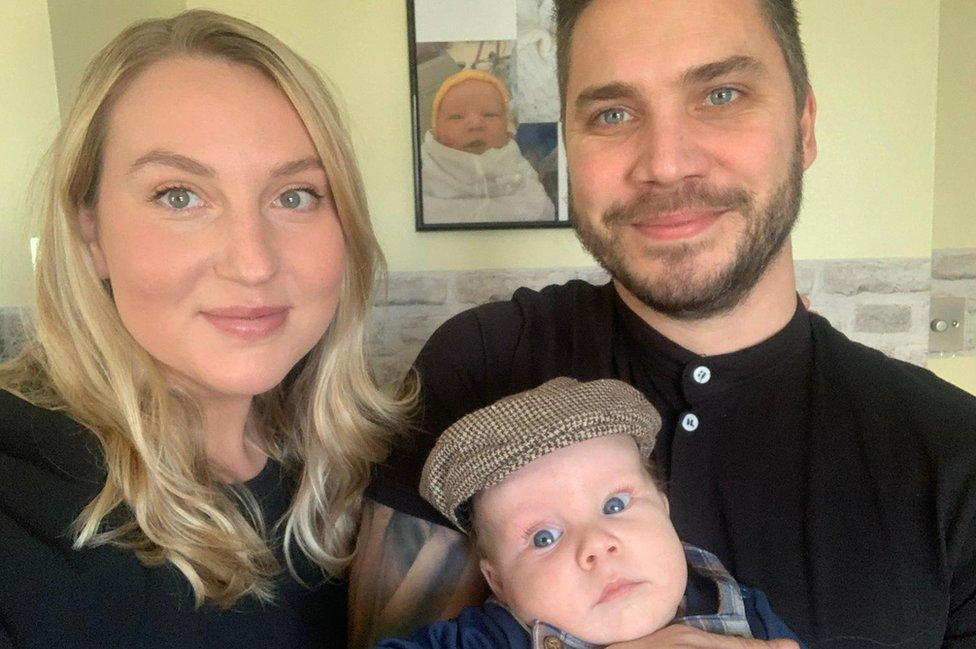
Megan Willis and John Hall were determined their baby would have the best chance at life
Ms Willis said she felt like her family had been "reborn" following the treatment.
"We were told it might take months for any change but everything about him is a little bit stronger.
"His energy levels and head control most of all. We can't wait for the next few months."

Find BBC News: East of England on Facebook, external, Instagram, external and Twitter, external. If you have a story suggestion email eastofenglandnews@bbc.co.uk, external
Related topics
- Published11 August 2021
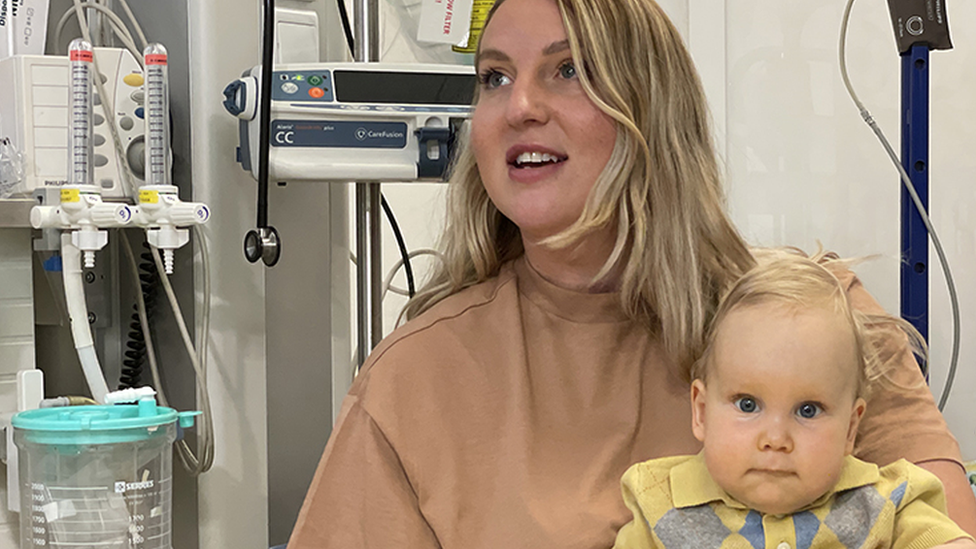
- Published10 July 2021
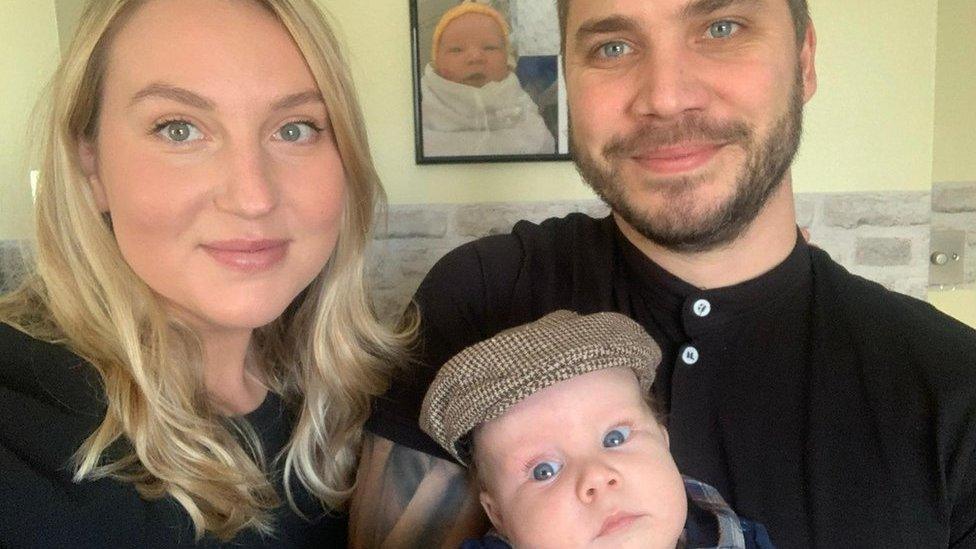
- Published7 July 2021
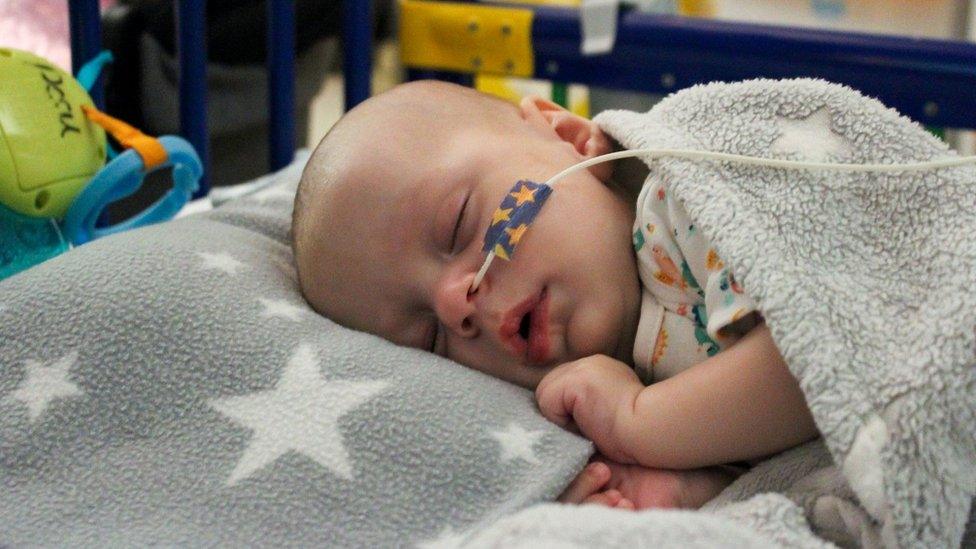
- Published7 July 2021
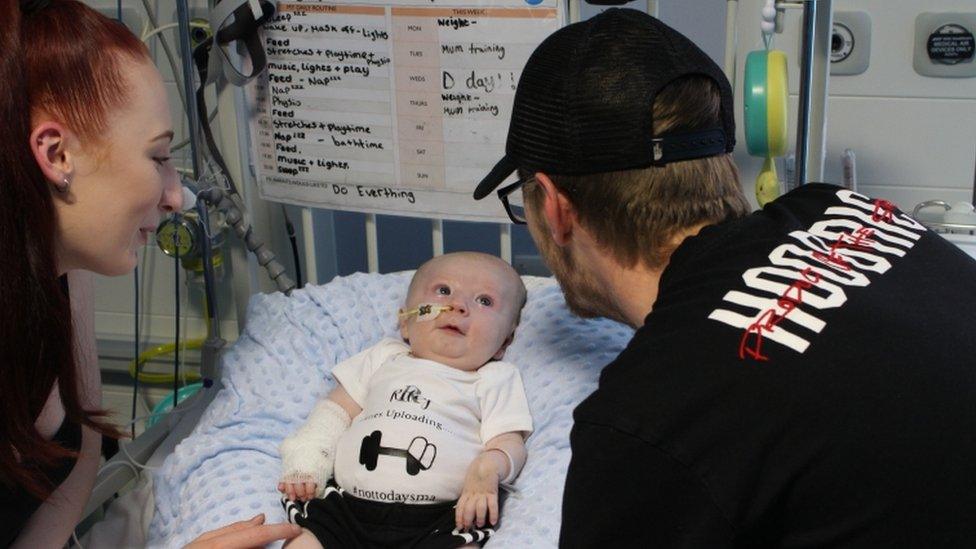
- Published8 March 2021
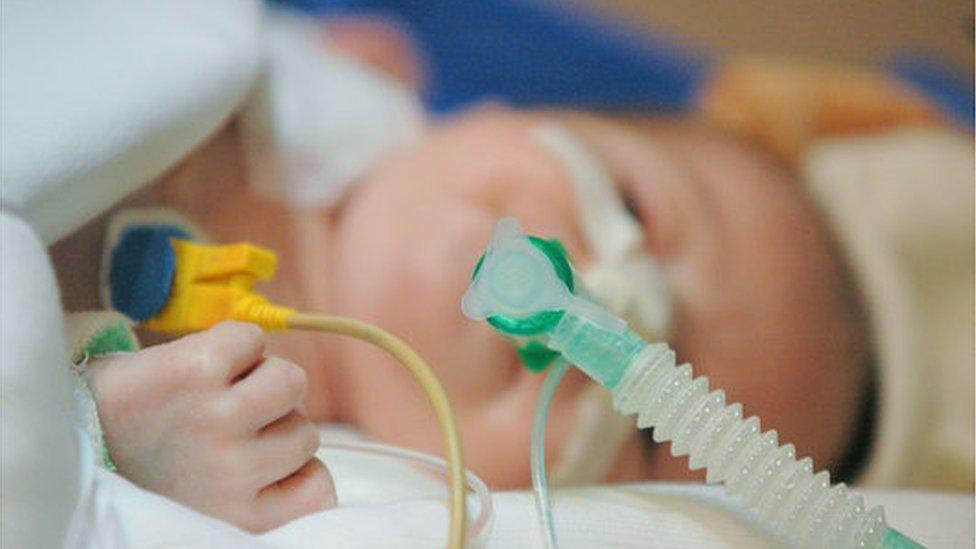
- Published17 December 2020
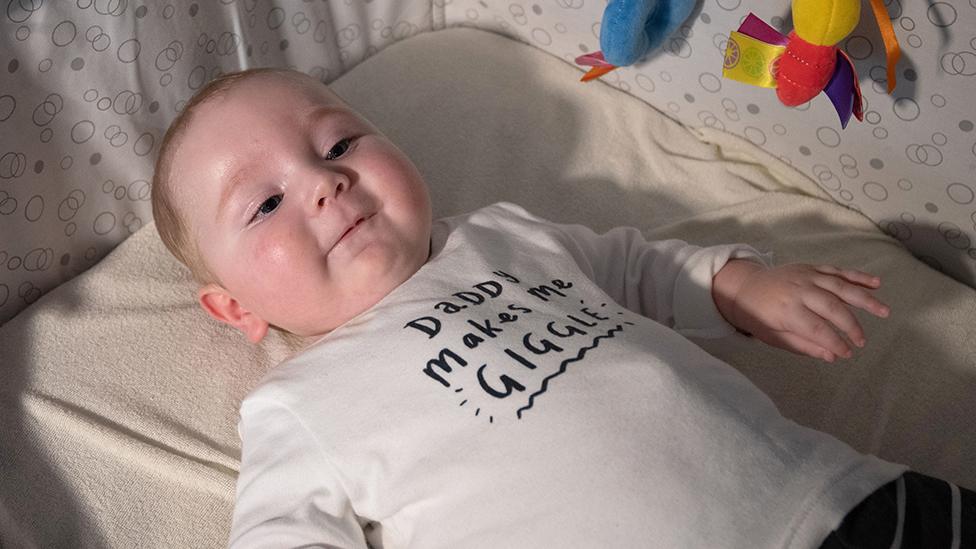
- Published15 May 2019
